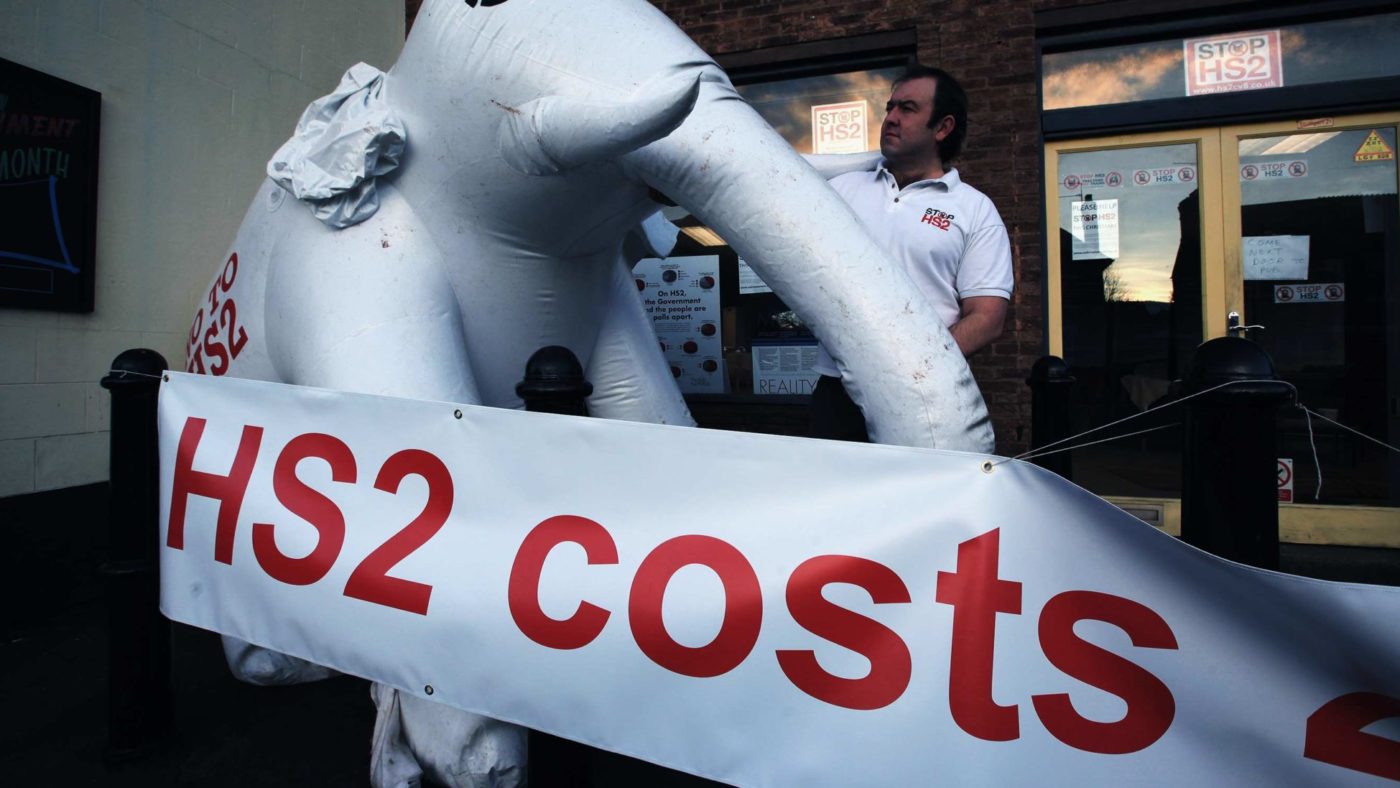The House of Lords’ Economic Affairs Committee has released a report on HS2. It is a damning indictment of the whole sorry scheme, one which will come as no surprise to anybody who has been following the debacle over the past few years.
The report, in what must be one of the greatest examples of understatement in years, says peers were “far from convinced” that the scheme would be built within its already huge £55.7 billion budget. Seven billion has already been spent on HS2 with not a single piece of track even being laid. Given the current rate of expenditure, it seems difficult to see how the entire project could come in at under £100 billion, and it would be an absolute miracle if it remained under £55 billion.
The report even suggested moving the station of HS2 from Euston to West London and reducing the speed of the service. Were that to happen it would call into question the entire project. Part of the reasoning behind HS2 is that it will get people to and from central London (not the middle of nowhere) at high speed (the clue being in the name). If it cannot even do this, it would surely be time for it to be scrapped.
Part of the reasoning behind phase one is that it will be good for Birmingham as it will allow people to travel between there and London more quickly. Spending money to leave Birmingham as quickly as possible might seem like a good idea to many people, but surely not at a cost of over £55 billion. It has also been argued that it will be good for local shops, restaurants, bars, and theatres in Birmingham as more people are likely to visit from London. This is a pretty weak argument, given that the capital can hardly be described in lacking these things.
Supporters of HS2 also say that it well help to alleviate the housing crisis in London – faster commute times into London means that living in Birmingham will be more convenient for those who work in London. It is certainly true that there is a housing crisis, but this is because because we have failed to build enough houses. Telling people to just move to Birmingham is not only callous but will also simply spread the misery of London’s housing crisis to Birmingham if not enough new homes are built.
What about the supposed benefits to the North of the country? Again, the case looks pretty flimsy. The Lords report also spotted this, saying that the project risked “short-changing” the North of England and that the first phase offered “little benefit” to northern cities.
It is a typically Westminster Bubble approach to think that the biggest concern of everyone in the country is how quickly they can get to London. As somebody who was raised in Huddersfield and now lives in London, I can confirm that travelling between the two is not very difficult.
The real issue is getting between towns and cities in the North. Last summer, when I was back home, I visited a friend in Bradford. Having to wait over 30 minutes at the railway station, myself and countless other people squeezed onto the antiquated train. There was no room to sit down – although that was no loss given that the seats were threadbare and filthy. With a shuddering start the train began to move and – with some difficulty – finally managed to reach its’ pathetically slow top speed. After what seemed like an eternity, I finally reached my destination – aching from the constant bumps as the train stopped and started. Unfortunately, disembarking was an issue as some of the doors were broken.
This is the level of service that people in the North have to contend with on a daily basis. They have to wait a long time for a train to get them to work or to school or to care for elderly relatives, and then have to endure slow, crowded, and uncomfortable journeys once on board.
Commuters in the North are still being forced to use Pacer trains – basically old British Leyland buses mounted on train frames – many of which are over 30 years old. The UK is the only country in the world which still uses them – even the Iranians had the good sense to get rid of them back in 2005.
This lack of investment is holding the North back. It makes it hard for people in the surrounding towns and villages to travel to major cities such as Leeds, Manchester, and Sheffield. This seriously impacts the productivity and economic growth of the North, leaving many people to feel left behind and as though capitalism is not working for them.
Such a situation would be unforgivable regardless, but it is truly sickening when one considers the amount of money being spent on HS2 – a fraction of which could be spent on significantly improving the North’s transport infrastructure.
Of course, it is not just the North which would benefit from better transport infrastructure. That is why the TaxPayers’ Alliance launched its new paper this week, looking at how the HS2 budget could be more effectively spent.
HS2 will do nothing to solve the problems it has highlighted. It will not be good for Birmingham, it will not sort out London’s housing crisis, and it will lot deliver economic growth to the North. It needs to be scrapped and the money spent on investing in transport infrastructure that will actually make a real difference.
CapX depends on the generosity of its readers. If you value what we do, please consider making a donation.


